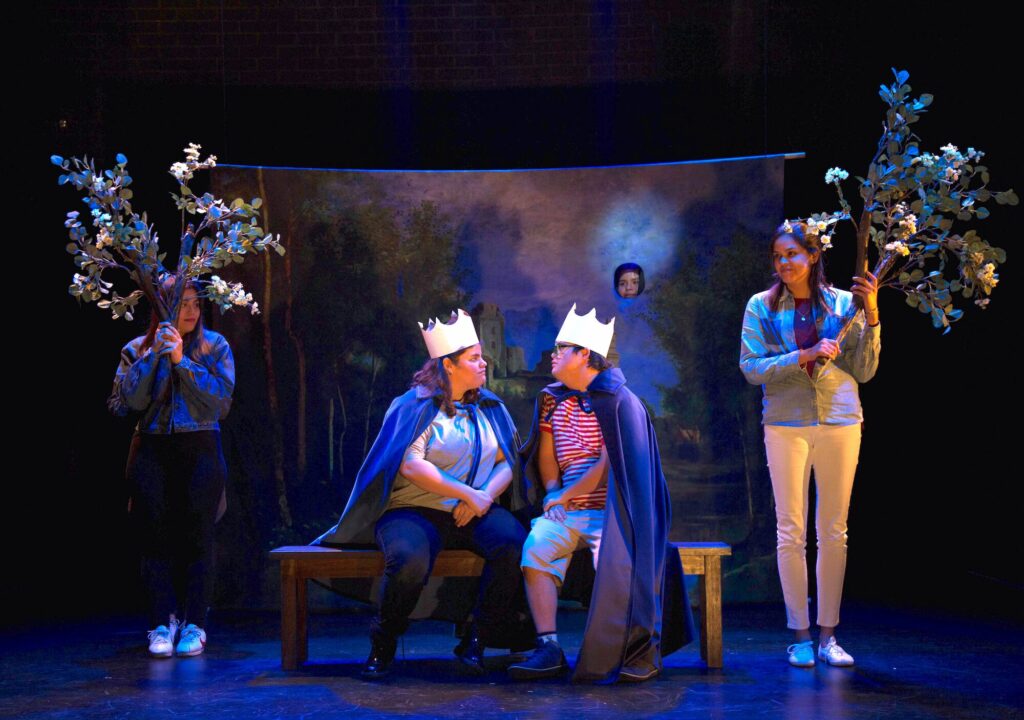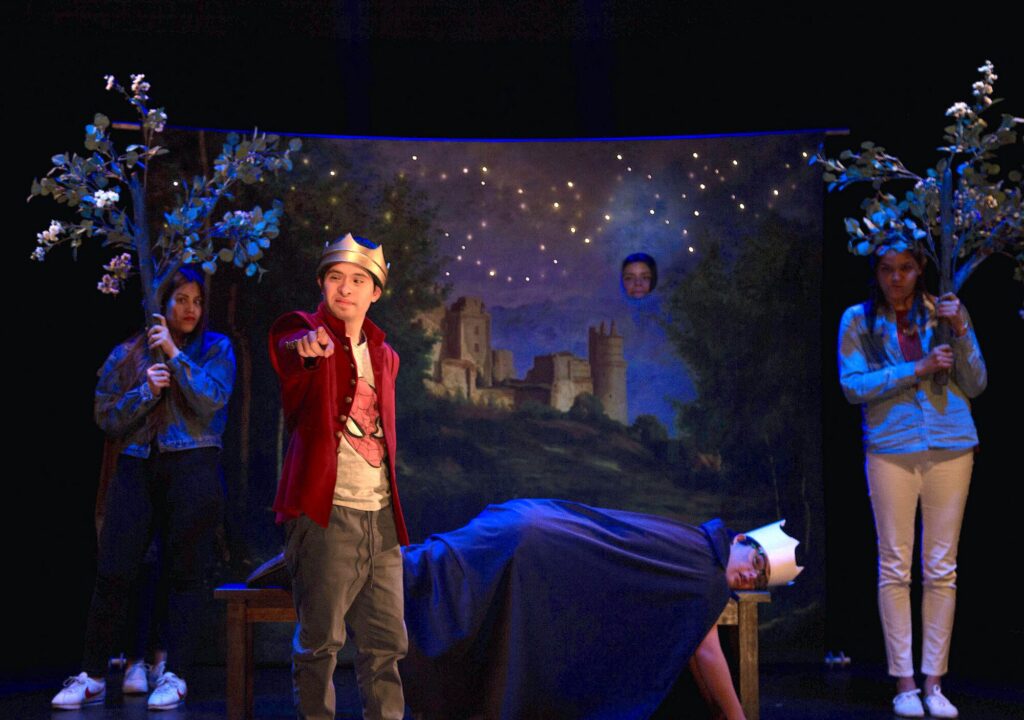Hamlet Reimagined by Chela De Ferrari
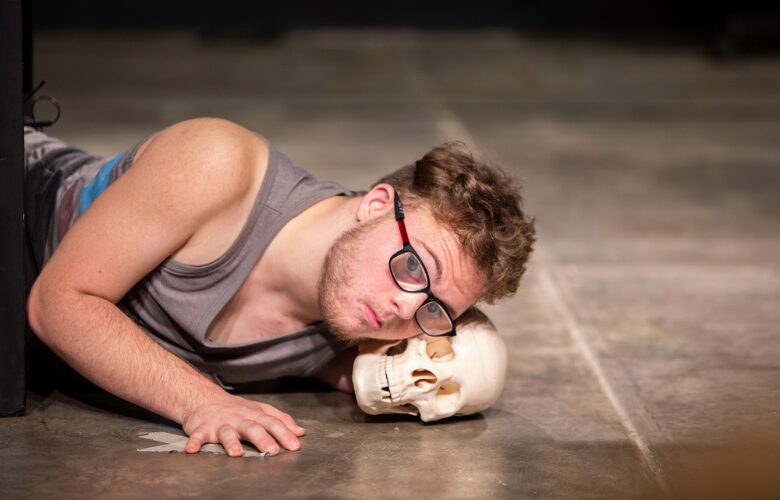
What does it mean “to be” in a world that overlooks your existence? This is the powerful question at the heart of a radical new production of “Hamlet” directed by Peruvian playwright and director Chela De Ferrari. In this bold adaptation, a group of actors with Down syndrome take the stage, not simply to perform Shakespeare’s iconic tragedy, but to confront society’s notions of value, visibility, and artistic legitimacy.
At once deeply personal and profoundly political, the production places lived experience at the center of the performance, transforming Hamlet’s existential inquiry into a declaration of presence. “To be or not to be?” becomes a visceral, urgent call from those often excluded from cultural narratives.
“Merging things that were not born to be together and seeing how their union produces clarity over an area of the human that was in the dark — they say that is what art consists of,” writes playwright and journalist Mariana de Althaus. “Chela de Ferrari brought together the most prestigious text of universal dramaturgy with a group of ‘invisible’ actors, those discarded by our neuronormative system. And in its assembly… the words of the classic of the classics show new meanings, are filled with electricity.”
The production is the latest from Teatro La Plaza, a cultural institution in Lima, Peru, founded in 2003 with the mission of creating socially engaged theater that questions, provokes, and connects with its community. Teatro La Plaza’s creative philosophy goes beyond programming: it’s a space for reflection on the complexities of being human in today’s world.
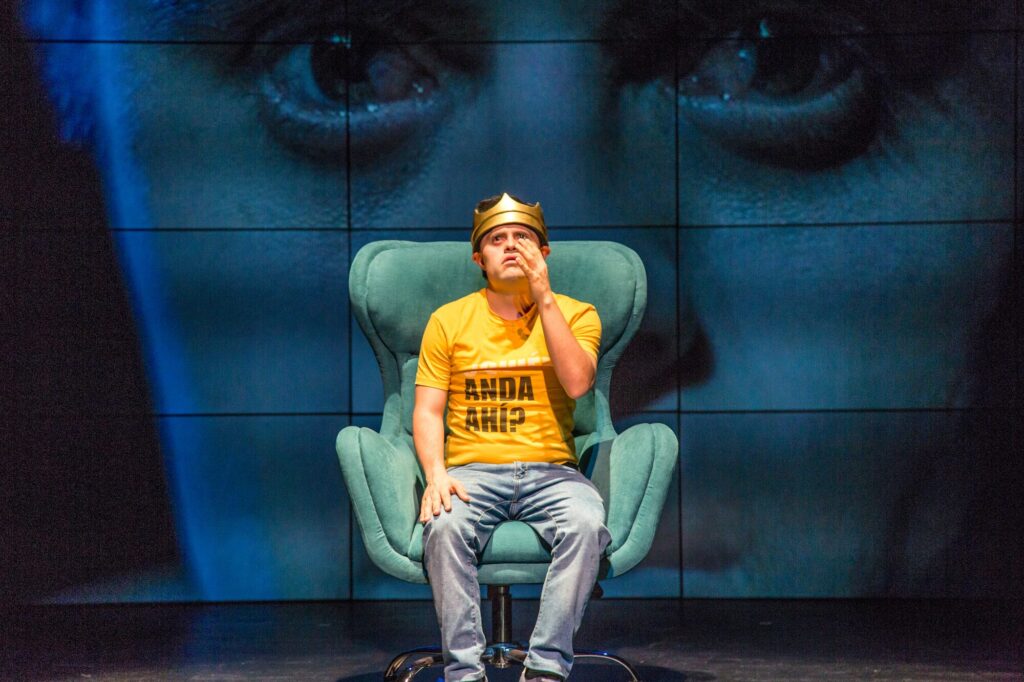
“Historically, people with Down syndrome have been considered a burden, a social waste,” says De Ferrari. “But what value and meaning do they have today, in a world where efficiency, productivity, and unattainable standards of beauty are the norm? This play is a response to that question.”
The project emerged from a moment of recognition. Jaime Cruz, a young man with Down syndrome who had worked at La Plaza as an usher, once introduced himself at a staff gathering not by his role in the theater, but as an actor. “That stayed with me,” De Ferrari explains. “I pictured him as Hamlet. Something about that image made perfect sense.”
From that inspiration, the idea expanded into a full-scale adaptation that blends Shakespeare’s text with the actors’ own experiences. Through improvisation and collaborative storytelling, the ensemble began to explore the questions of Hamlet from their perspective — questions of identity, alienation, and the desire to be heard.
What emerged is a version of “Hamlet” unlike any other. The cast doesn’t just interpret the play — they inhabit it. Their performances recontextualize Shakespeare’s words, infusing the text with emotional honesty and raw vulnerability.
“They speak with honesty and presence, stripping away the layers of pretense we often bring to the classics,” says De Ferrari. “Suddenly, the text feels immediate, raw, and alive.”
For many audience members, the experience is transformative. “People often come expecting a social project,” De Ferrari admits. “But they leave having witnessed rigorous, emotionally profound theater.” As one spectator said, “It was a Shakespeare I didn’t know I needed.”
“All the actors and actresses are Hamlet,” wrote cultural critic Carlos Gil. “They all show themselves from their own selves so that the spectators can elevate the experience to something collective. It’s a proposal of immeasurable artistic category.”
The production also pushes back against entrenched ideas about theatrical excellence. In traditional performances, hesitations, speech differences, and long pauses are often seen as flaws to be corrected. Here, they become part of the storytelling. These moments of cognitive pause, repetition, or unorthodox rhythm add new dimensions to the character of Hamlet — turning perceived limitations into acts of interpretation.
“Rather than viewing these as errors, we leaned into them,” says De Ferrari. “There’s something incredibly powerful about witnessing a character like Hamlet pause, search for words, and sit in that uncertainty.”
Beyond artistic innovation, the production carries a political charge. It challenges audiences to reconsider who gets to speak, who gets seen, and whose stories are deemed worthy of telling. The result is not only a theatrical event, but a cultural intervention.
“This adaptation is about recognizing how their voices expand the meaning of the play,” De Ferrari says. “It invites us to ask: What does it mean to be?”
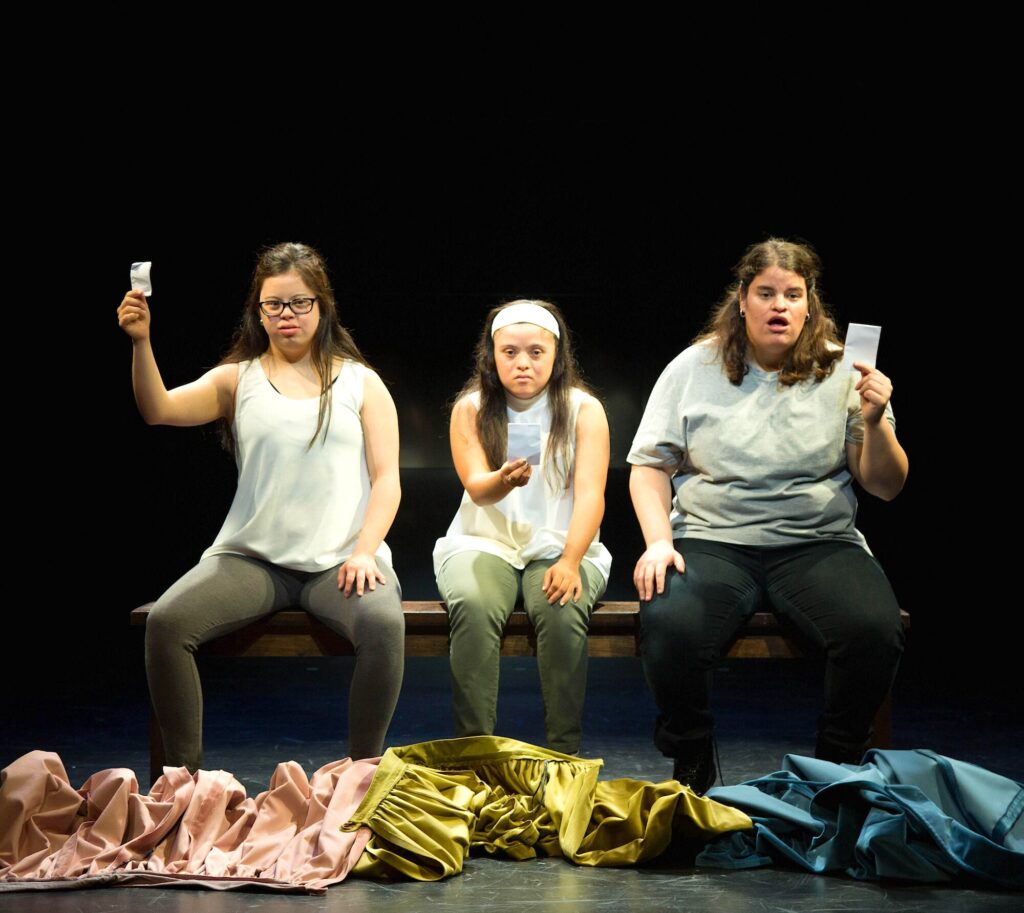
That question resonates long after the curtain falls. At the end of each performance, the cast invites the audience to dance with them on stage — a joyful, cathartic moment that breaks the fourth wall and affirms connection.
“It’s a moment of celebration,” De Ferrari notes. “And it lingers. People leave with a sense of community, of shared humanity.”
As part of its broader mission, Teatro La Plaza continues to nurture local talent and inclusive storytelling through its “Sala de Parto” program, which supports the development of new Peruvian plays and playwrights. This production of “Hamlet” is not a one-off, but part of a larger commitment to reimagining what theater can be — and who it is for.
As Raquel Vidales wrote for El País, “Another “Hamlet” is possible: actors with disabilities overcome prejudice and triumph on the theatrical stage.”
In this “Hamlet,” Chela De Ferrari and her cast offer more than a reinterpretation of a classic. They offer a new way of seeing — Shakespeare, performance, and one another.

Tour Dates
Lincoln Center – New York, USA
19 April
Barbican Centre – London, UK
24–27 April
Brighton Festival – Brighton, UK
9–11 May
Modu Art Theatre – Seoul, South Korea
23–25 May
National Theatre & Concert Hall – Taipei, Taiwan
16–18 May
RISING Festival – Melbourne, Australia
4–8 June
The show is available for booking via Aurora Nova.
All images are the courtesy of Teatro La Plaza.
Editor's Note: At StageLync, an international platform for the performing arts, we celebrate the diversity of our writers' backgrounds. We recognize and support their choice to use either American or British English in their articles, respecting their individual preferences and origins. This policy allows us to embrace a wide range of linguistic expressions, enriching our content and reflecting the global nature of our community.
🎧 Join us on the StageLync Podcast for inspiring stories from the world of performing arts! Tune in to hear from the creative minds who bring magic to life, both onstage and behind the scenes. 🎙️ 👉 Listen now!
